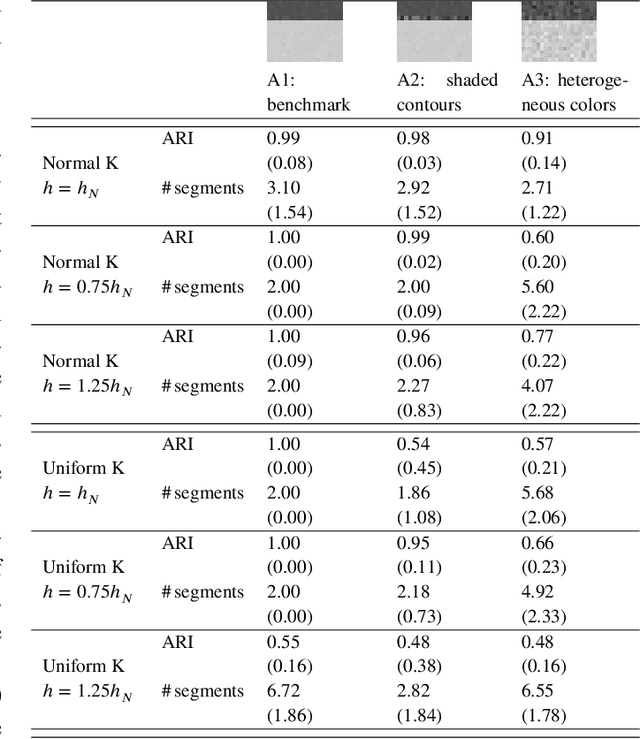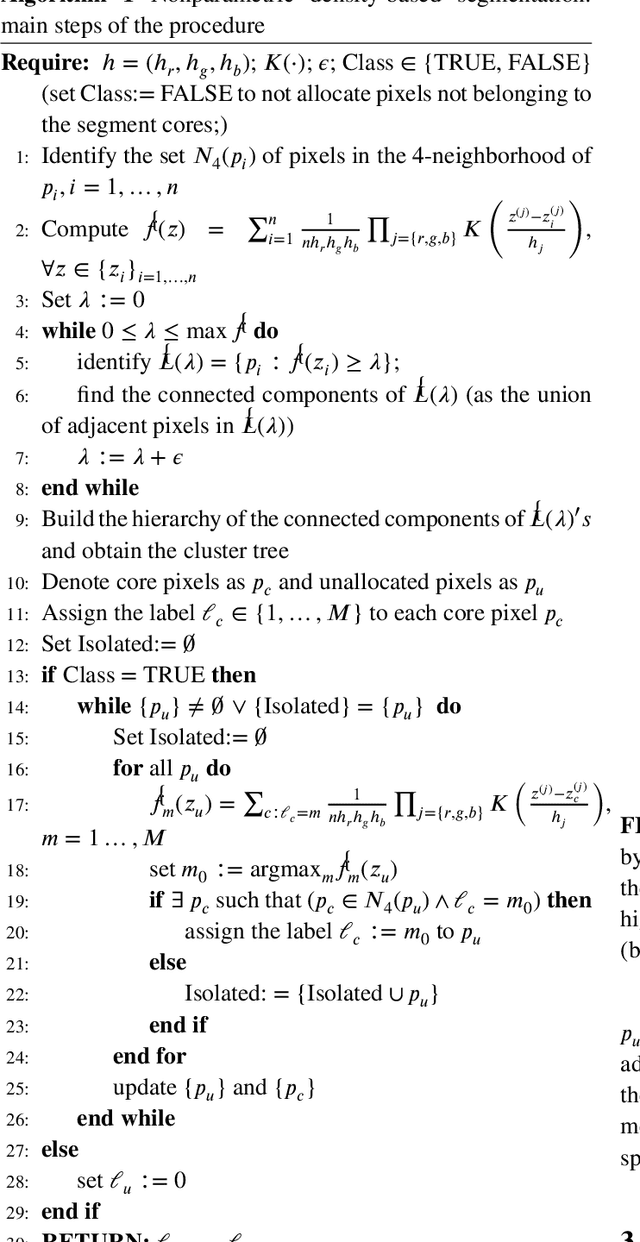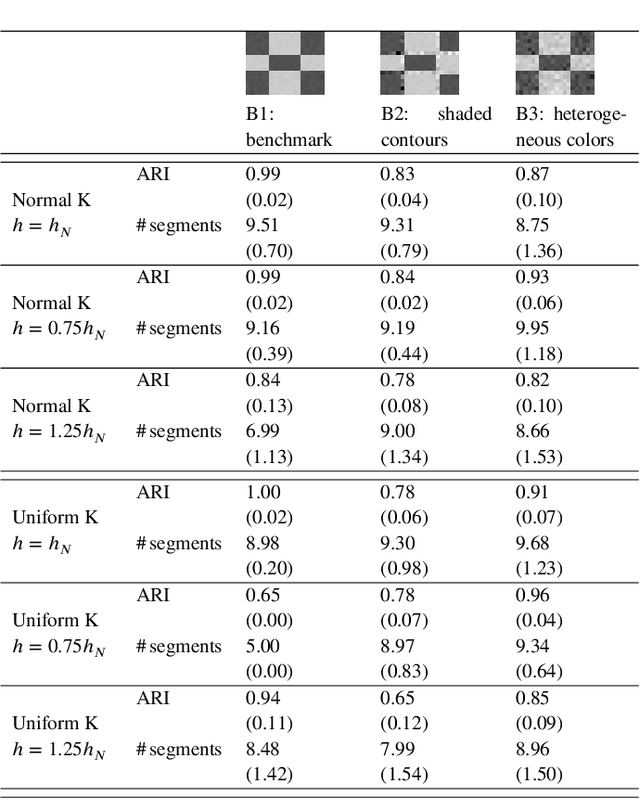Nonparametric clustering for image segmentation
Paper and Code
Jan 20, 2021



Image segmentation aims at identifying regions of interest within an image, by grouping pixels according to their properties. This task resembles the statistical one of clustering, yet many standard clustering methods fail to meet the basic requirements of image segmentation: segment shapes are often biased toward predetermined shapes and their number is rarely determined automatically. Nonparametric clustering is, in principle, free from these limitations and turns out to be particularly suitable for the task of image segmentation. This is also witnessed by several operational analogies, as, for instance, the resort to topological data analysis and spatial tessellation in both the frameworks. We discuss the application of nonparametric clustering to image segmentation and provide an algorithm specific for this task. Pixel similarity is evaluated in terms of density of the color representation and the adjacency structure of the pixels is exploited to introduce a simple, yet effective method to identify image segments as disconnected high-density regions. The proposed method works both to segment an image and to detect its boundaries and can be seen as a generalization to color images of the class of thresholding methods.
 Add to Chrome
Add to Chrome Add to Firefox
Add to Firefox Add to Edge
Add to Edge